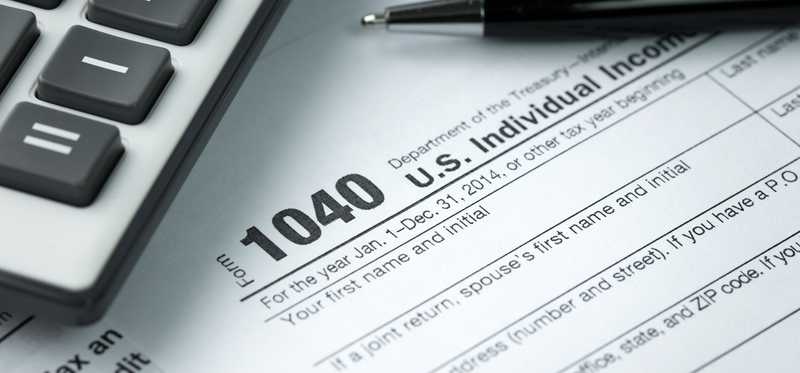Start Your Year Off Right With These 12 Financial Moves

Start Your Year Off Right With These 12 Financial Moves
Start this year off right
A new year means a fresh opportunity to take control of your finances. You may be focused on preparing your taxes or recovering from your holiday spending spree, but don’t forget to look forward and make plans for the future as well.
Here are 12 financial actions that everyone should take in 2019 to help start the new year off on the right foot.
ALSO READ: 5 Quotes to Make You Rethink Your Personal Finances
Previous
Next

Create a budget
Adhering to a budget is one of the best ways to boost your savings and prevent overspending. First, figure out how much money you need to set aside for your rent or mortgage payment, utilities, groceries and other living expenses. Then, decide what you want to do with the money that’s left over.
If you have high-interest credit card debt, you should devote some of the funds toward paying this down. It’s also a good idea to set aside some money for retirement and for your other savings goals, like a down payment on a home. Cap your spending on extras like dining out, clothing, or entertainment purchases. And most importantly, stick to the budget that you set for yourself.
Previous
Next

Automate your savings
If you struggle with remembering to save on your own, consider automating your savings instead. You can set up your 401(k) so a certain percentage of each paycheck is automatically deposited into this account. If your paychecks are direct deposited to your bank account, you may also be able to divert part of this to your savings account so you don’t have to think about it.
Previous
Next

Rid yourself of unused items and subscriptions
Selling off old, unused items is a great way to declutter your life and make a little extra cash. You can put this extra money toward your retirement, paying down debt or saving for a large purchase.
It’s also a good idea to reevaluate which subscription services you’re signed up for. If you aren’t using them as often as you thought you would, it may be better for you to cancel them and save that money each month.
Previous
Next

Check your credit report
Everyone is entitled to one free credit report per bureau per year through AnnualCreditReport.com. It’s important to check yours regularly to ensure that the information listed there is correct. Errors or fraudulent accounts may hurt your credit score and make it more difficult to secure loans and lines of credit in the future.
Read through your reports carefully and check the information against your own records. If you find a mistake or an account you don’t recognize, notify the institution and the credit bureau immediately. You may also want to place a fraud alert on your account if you believe you’re the victim of identity theft.
ALSO READ: Is Your Top New Year's Resolution for 2019 Financial?
Previous
Next

Start an emergency fund
Everyone should have an emergency fund that can cover at least three months of living expenses. Six months is even better. If you lose your job or have a medical emergency or other unexpected expense, you can dip into this fund rather than taking on more debt.
Add up your living expenses and determine how large your emergency fund should be. Then, decide how much you can afford to set aside each month for the fund and keep saving until you reach your goal. If you already have an emergency fund, it’s a good idea to check it once a year to ensure that it is still adequate for your needs.
Previous
Next

Boost your retirement contributions
Retirement account contribution limits are up in 2019. You may contribute up to $19,000 to a 401(k) and $6,000 to an IRA this year. Adults 50 and older may contribute up to $25,000 to a 401(k) and $7,000 to an IRA.
Reevaluate your current retirement contributions and try to increase them, if possible. Ideally, you should be setting aside at least 10% of your salary for retirement each year, but if you can’t afford to do this, then just save as much as you can. If you don’t have a retirement account, now is a great time to open one. Your employer may offer a 401(k) or you can set up an IRA on your own.
Previous
Next

Make last-minute retirement contributions for 2018
You’re allowed to make retirement contributions for the 2018 tax year until April 15, 2019. If you didn’t make any contributions last year or you didn’t contribute as much as you’d like, there is still time to remedy this. Extra contributions will help your retirement savings grow more quickly while also reducing your taxable income for 2018.
You should note that 2018 contribution limits are slightly lower than 2019’s. You’re only allowed to contribute $18,500 to a 401(k) or $5,500 to an IRA. Those 50 and older are allowed up to $24,500 to a 401(k) and $6,500 to an IRA.
Previous
Next

Review your investment strategy
The beginning of the year is a great time to reevaluate your investment strategy and make any necessary adjustments. Look into how much you’re paying in expense ratios and other investment fees, and consider moving some of your money to lower-cost investments, like index funds. Now’s also a good opportunity to sell off consistently underperforming assets.
ALSO READ: 4 Smart Money Resolutions Anyone Can Keep in 2019
Previous
Next

Ensure your beneficiary designations are up to date
If you got married or divorced in 2018 or you had a child, it’s important that you revise your life insurance and retirement account beneficiaries. Your beneficiary designations trump even your will, so it’s crucial that you keep these updated.
You can check your existing beneficiaries by reaching out to the company you have your life insurance policy or retirement account through. If the information is out of date, you may need to fill out a new form listing your new beneficiaries.
Previous
Next

Reevaluate your insurance coverage
It’s a good idea to shop around for new insurance at least once per year to see if you can get a better deal with a different company. Even if you don’t end up switching, it’s still a good idea to look over your existing policies to make sure that they are still adequate. If they’re no longer enough to fully protect you, consider increasing your coverage. Otherwise, you could end up paying more out of pocket than you anticipated if you need to file a claim.
Previous
Next

Contribute to your health savings account (HSA) regularly
If you have a high-deductible health insurance plan, you can open a health savings account (HSA). Money you put in this account comes off of your taxable income for the year and you won’t be taxed on it at all if you use it for a qualified medical expense. Even better, once you turn 65, you can use any accumulated funds for non-medical expenses without penalty, though you will have to pay income tax on these withdrawals.
Single adults may contribute up to $3,500 to an HSA in 2019 and families may contribute up to $7,000. You may be able to automate your contributions to your HSA so you don’t have to think about them.
Previous
Next

Get your tax documents together
You should be receiving your W2s, 1099s and other tax forms within the next few weeks. When you receive them, check to make sure that the information listed there matches your pay stubs and monthly statements and then you can toss any documents you don’t need for tax purposes. You can also throw out your tax returns that are more than three years old. If the IRS is going to audit you, they typically must do it within this window. Keep all of your tax paperwork together and file as early as possible to avoid becoming a victim of tax return identity theft.
Previous
Next

Make 2019 your best year yet
By taking even a few of these actions, you can set yourself up for a great 2019. But don’t just stop there. Check in with yourself every couple of months to ensure that your budget is working for you and to see if you can afford to boost your savings any more. When it comes time to retire or to make a big purchase, you’ll be grateful you took the time to prepare yourself for the future.
The Motley Fool has a disclosure policy.
Previous
Next
Invest Smarter with The Motley Fool
Join Over Half a Million Premium Members Receiving…
- New Stock Picks Each Month
- Detailed Analysis of Companies
- Model Portfolios
- Live Streaming During Market Hours
- And Much More
READ MORE
HOW THE MOTLEY FOOL CAN HELP YOU
-
Premium Investing Guidance
Market beating stocks from our award-winning service
-
The Daily Upside Newsletter
Investment news and high-quality insights delivered straight to your inbox
-
Get Started Investing
You can do it. Successful investing in just a few steps
-
Win at Retirement
Secrets and strategies for the post-work life you want.
-
Find a Broker
Find the right brokerage account for you.
-
Listen to our Podcasts
Hear our experts take on stocks, the market, and how to invest.
Premium Investing Services
Invest better with The Motley Fool. Get stock recommendations, portfolio guidance, and more from The Motley Fool's premium services.